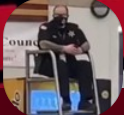

Exactly. Ever skip a stone on the surface of a lake? It’s like that, except it’s a continuous skip, with air instead of water, and you’re inside the stone.


Exactly. Ever skip a stone on the surface of a lake? It’s like that, except it’s a continuous skip, with air instead of water, and you’re inside the stone.
Been the only one in my family for years using Linux, but over the last few months struggles with Windows have basically resulted in all but one computer in the house being migrated to Linux.
Put it on my 10-year-old son’s desktop because Windows parental controls have been made overly complicated and require Internet connectivity and multiple Microsoft accounts to manage. Switched to Linux Mint, installed the apt sources for the parental control programs, made myself an account with permissions and one for him without permissions to change the parental controls, and done. With Steam he can play all of the games in his library.
Only my wife is still using Windows, but with ads embedded in the OS ramping up, and features she liked getting replaced with worse ones, she’s getting increasingly frustrated with Microsoft.

No, they would respond exactly the way they already are responding. They would claim climate transition as a concept was made up by liberals, they would deny such a thing is possible, let alone happening, and they would enact policies in states they control to limit speech about it and punish people whose professions have to deal with it. You know, like they’re doing in Florida to doctors and teachers about LGBTQ+ and to scientists about the climate.
How would you scientifically measure a difference between those two definitions?


I don’t see how this wouldn’t be derivative work. I highly doubt a robust, commercial software solution using AI-generated code would not have modified that code. I use AI to generate boilerplate code for my side projects, and it’s exceedingly rare that its product is 100% correct. Since that generated code is not copyrightable, it’s public domain, and now I’m creating a derived work from it, so that derived work is mine.
As AI gets better at generating code and we can directly use it without modification, this may become an issue. Or maybe not. Maybe once the AI is that good, you no longer have software companies, since you can just generate the code you need, so software development as a business becomes obsolete, like the old human profession of “computer.”


This makes sense to me, and is in line with recent interpretations about AI-generated artwork. Basically, if a human directly creates something, it’s protected by copyright. But if someone makes a thing that itself creates something, that secondary work is not protected by copyright. AI-generated artwork is an extreme example of this, but if that’s the framework, applying it to data newly generated by any code seems reasonable.
This wouldn’t/shouldn’t apply to something like compression, where you start with a work directly created by someone, apply an algorithm to transform it into a compressed state, and then apply another algorithm to transform the data back into the original work. That original work was still created by someone and so should be protected by copyright. But a novel generation of data, like the game state in memory during the execution of the game’s programming, was never directly created by someone, and so isn’t protected.


If it’s dangerous to repair it, it’s dangerous to own. That’s the domain for regulations by the government, not arbitrary software restrictions by software manufacturers.
They don’t implement these to keep you safe. They do it purely to make more money.


A lot of the far right are millennials and Gen Z. While the proportions in different generations are different, this isn’t purely a generational thing. The implied message is that we can “wait them out,” but that is basically just the same as doing nothing. We can’t do nothing. We have to motivate people to vote, and then get them to volunteer and have them get others to vote.
If that’s what the map would look like if younger generations voted like 65+, then go get those people voting so we get that map next election.
It’s also missing the punchline where they’re both bulls, so they don’t produce milk.


Can’t download on Firefox for Android. Why does it require a desktop browser?
That strongly depends on the job. If the company has to follow regulations to meet some security posture, wiping the OS (and all the security tools and configuration set up by IT) to put your own favored OS without matching the security requirements could wind up with you getting fired.


Jack Black canceled his tour after Kyle Gass made a joke about the Trump assassination attempt.


The attack vector described in the article uses the VPN client machine’s host network, i.e. the local network the device is attached to. They don’t discuss the DHCP server of the VPN provider.


The article touches on that. VPN traffic is itself a small category, so even if we assume all VPN traffic is torrenting, that doesn’t push it very far up the charts.
Cut the extra inch off the long side to get a 4" square, then cut the remaining 1" x 4" piece into 4 1" squares. The boy never said the squares had to be the same size.
If the triangles have already been cut, it’s a peanut butter sandwich: use peanut butter on the edges to glue it back together and cut the squares. The child gave you a challenge, think outside the box!
It was a joke.